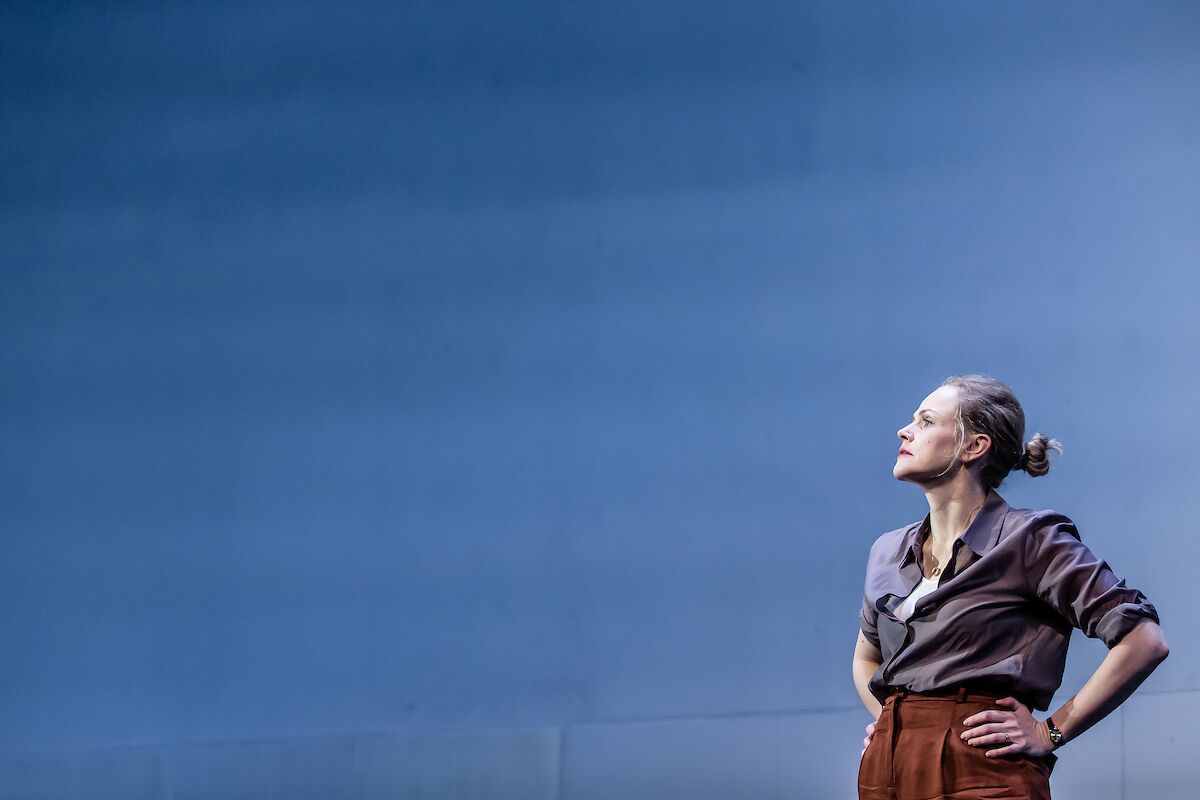As part of Fertility Fest, Avalanche: A Love Story is a profound and deeply provocative piece about fertility issues. Based on the real experiences of writer Julia Leigh, it is perfect for a festival that wishes to raise awareness about the complex and gruelling process that thousands of women go through every year, with no guarantee of success. Featuring a stellar solo performance by Maxine Peake, Avalanche sheds light on both the physical and psychological toll fertility treatments have on the women going through it – and how it can change their relationship with not only their partner but everyone else around them.
In educating the audience about IVF treatments, the most striking aspect of the performance is how exploitative private fertility clinics are revealed to be. Cash cows feeding on the vulnerable, Leigh’s detailed experience shows that going through the process of IVF is not a decision that can be taken lightly – nor is it even an option for those who are not as financially stable as Peake’s character. Leigh directs further criticism towards the fertility industry by higlighting the lack of concrete evidence surrounding success rates, which is still a prevalent issue. As detailed in the programme, in Australia – where Leigh had her IVF treatment – clinics were not bound by law to reveal their success rates to patients. On the stage, this translates into evasive, uncommitted comments about a lack of clear data and emotionally manipulating remarks like ‘there’s no harm in trying again’ – which are all infuriating to hear.
This frustration comes not only from the realisation that thousands of vulnerable women face these “choices”, as one doctor describes them – each year, but also from our own desperation to see Peake’s character have the child she dreams of. Not once leaving the stage or making it feel empty, Peake captivates her audience as she shares her story. Well into her thirties when she decides she is ready to have a baby, Peake’s character is not naïve: she knows that her odds are not brilliant. Yet her hope and excitement with each procedure is so endearing to watch that you find yourself right there with her, hoping for a happy result. Whenever there is a setback or time that is wasted you too feel crushed.
As the play goes on, Peake’s isolated struggle becomes difficult to watch. Jokes about the “unsexy” process of hormone treatment fade away, leaving a middle-aged woman alone, extremely bloated and mentally frail. Like those close to her, you wonder when is the time to stop – to say enough is enough. By this point, however, Peake is no longer in control, as she is literally haunted by the “childlings” she is so desperate to have. Her character’s state of mind is reflected in the stage designed by Marg Howell, as the clinical white interior begins to crumble and eventually tower over Peake. It is an exceptional feat of design, which results in a mesmerising conclusion as Peake finally finds closure.
Given Julia Leigh’s own prominence, it is easy to look her up before seeing Avalanche to find out whether her fertility treatments were a success. Knowing the outcome beforehand takes away from the performance’s dramatics. Still, that does not stop Avalanche from being a powerfully insightful and moving piece of theatre, educating the audience on the complications couples can face when trying to conceive. With a flawless performance from Peake in tow, it is a love story for the (modern) ages.
